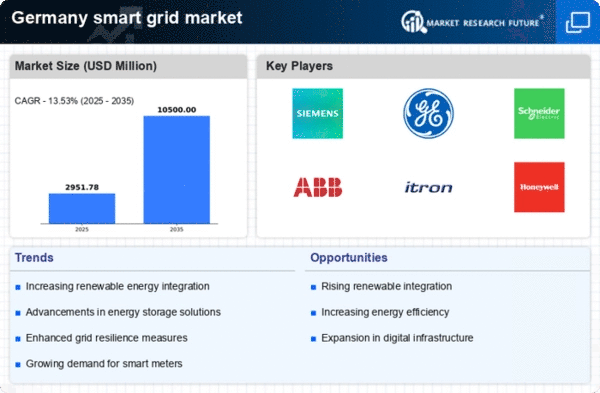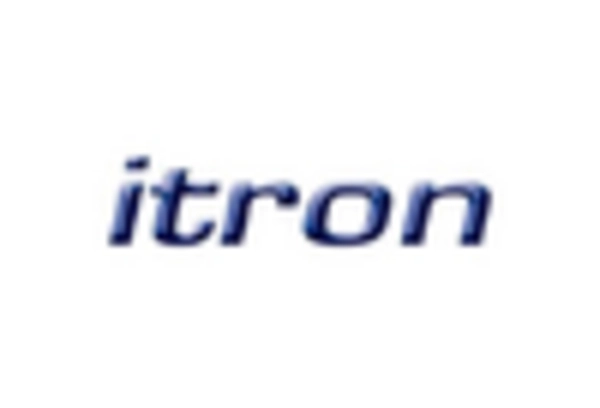Consumer Engagement and Awareness
The growing awareness among consumers regarding energy consumption and sustainability is driving the smart grid market in Germany. As individuals become more conscious of their energy usage, there is a rising demand for smart technologies that provide insights into consumption patterns. The smart grid market is responding by offering solutions that empower consumers to make informed decisions about their energy use. Initiatives such as energy management apps and home automation systems are gaining traction, enabling users to optimize their energy consumption. This trend is expected to lead to a 25% increase in the adoption of smart home technologies by 2026. Enhanced consumer engagement not only fosters energy efficiency but also supports the overall objectives of the smart grid market.
Rising Demand for Electric Vehicles
The increasing adoption of electric vehicles (EVs) in Germany is significantly influencing the smart grid market. With the government aiming for 10 million EVs on the road by 2030, the need for a robust charging infrastructure is paramount. Smart grids can facilitate the integration of EVs by enabling vehicle-to-grid (V2G) technologies, which allow EVs to return energy to the grid during peak demand. This not only stabilizes the grid but also provides financial incentives for EV owners. The smart grid market is poised to capitalize on this trend, as investments in charging stations and grid upgrades are projected to reach €5 billion by 2027. The interplay between EV growth and smart grid technology is likely to create a more resilient and efficient energy ecosystem.
Decentralization of Energy Production
The trend towards decentralized energy production in Germany is reshaping the smart grid market. With a growing number of households and businesses generating their own energy through solar panels and wind turbines, the traditional centralized grid model is becoming less viable. This shift necessitates the development of smart grid technologies that can manage distributed energy resources effectively. The smart grid market is expected to see increased demand for solutions that enable real-time monitoring and control of these decentralized systems. As of 2025, it is estimated that over 30% of Germany's electricity will be generated from decentralized sources, highlighting the need for advanced grid management solutions. This decentralization trend not only enhances energy security but also promotes sustainability, further driving the smart grid market.
Increased Energy Efficiency Initiatives
The push for enhanced energy efficiency in Germany is a pivotal driver for the smart grid market. The government has set ambitious targets to reduce energy consumption by 20% by 2025, which necessitates the adoption of smart grid technologies. These initiatives aim to optimize energy distribution and consumption, thereby reducing waste. The smart grid market is likely to benefit from investments in smart meters and demand response systems, which facilitate real-time energy management. Furthermore, the integration of energy-efficient appliances and systems into the grid can lead to substantial cost savings for consumers and utilities alike. As energy efficiency becomes a priority, the smart grid market is expected to expand, with projections indicating a growth rate of approximately 15% annually in the coming years.
Investment in Infrastructure Modernization
Germany's commitment to modernizing its energy infrastructure is a crucial driver for the smart grid market. The government has allocated substantial funding, approximately €10 billion, for the upgrade of aging electrical grids to accommodate new technologies. This investment aims to enhance grid reliability and resilience, which is essential for integrating renewable energy sources and managing demand fluctuations. The smart grid market stands to benefit from this modernization effort, as utilities seek to implement advanced technologies such as smart meters, automated distribution systems, and enhanced cybersecurity measures. As infrastructure improvements progress, the smart grid market is likely to experience accelerated growth, with an anticipated increase in market size by 20% over the next five years.

















